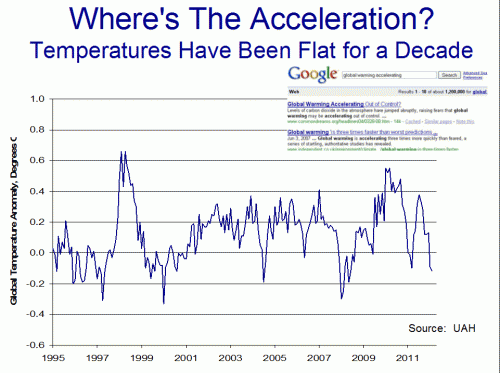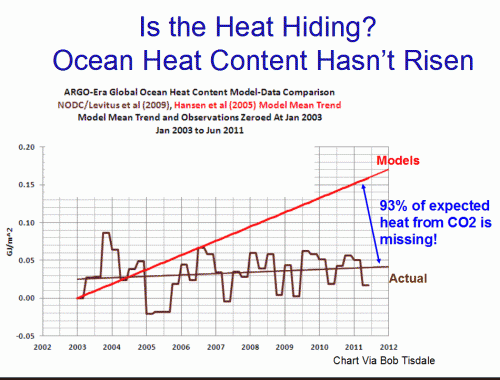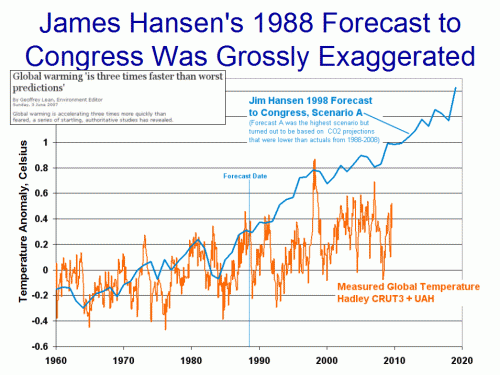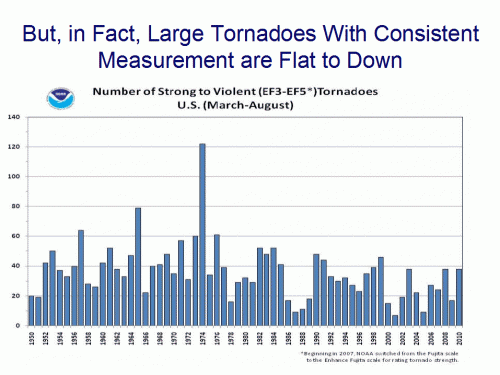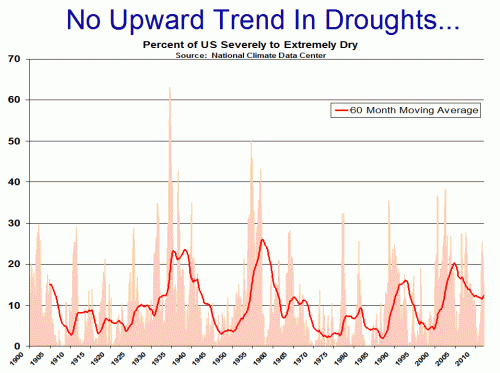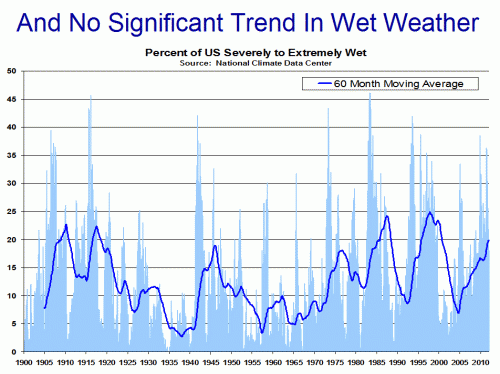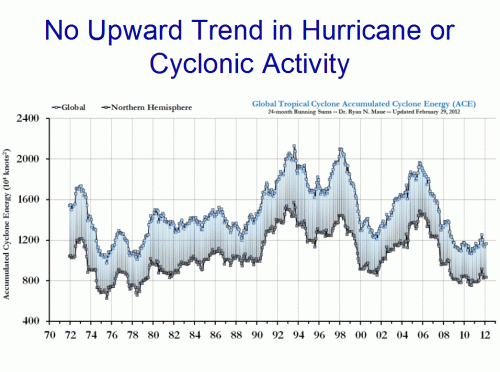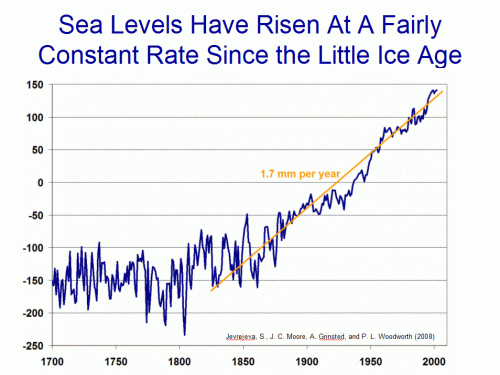I am simply amazed at the tone and lack of balance in your story called “the Battle” in the recent issue of Popular Science. More than anything, its incredible to me that a magazine with “science” in the title could dismiss the actual scientific arguments made by skeptics in something like two dozen words, while spending thousands of words on yet another exposition on how much money the Koch Brothers sends to the Heartland institute.
Granted there are skeptics that are full of bluster or who put up tasteless billboards. I wonder why your coverage of these types of issues in “the battle” is so asymmetric? Did you see the 10:10 video of teachers exploding kids who questioned global warming into a bloody mess? How about James Hansen’s arrests? Or the threats to skeptics by RFK jr and Grist Magazine that were far more extreme than Inhofe’s list you spend about a thousand words discussing? If there is some reason these are different, why? And by the way, why is Heartland’s funding to interesting but funding to Tides or WWF not worth mentioning? And finally, why do you discuss only the scientists on the alarmist side and +none of the crazy advocacy people, but on the skeptic side you discuss none of the scientists and only the crazy advocacy guys. I understand you have a point of view, fine, but can’t you even take a shot at treating both sides symmetrically?
By the way, I thought your inclusion of the Gleason/Monnett story bordered on journalistic malfeasance. These guys have their job threatened not by skeptics but by an audit, I believe on financial issues, by the Obama Administration (surely not a friend of the Limbaugh-Inhofe-Milloy cabal). You were careful not to say that skeptics were involved, but by its very inclusion in an article on skeptics’ bad actions you left the reader, purposefully I fear, with that incorrect conclusion. This story has nothing to do with “the Battle”, so why is it even here except to dish dirt on skeptics for something they did not even do? Sure, skeptics criticized their work and had a certain schadenfreude when they got in trouble, but again the trouble comes from Obama Administration financial investigators.
Anyway, over the last two paragraphs I spent more time talking about these behavioral issues than I intended. My core complaint is still your dismissal of the scientific part of skeptics arguments without even mentioning what they are. In fact, you dismiss key issues as tangential.
It is the latter that causes me to ask, and seriously this is not rhetorical or smart-*ss, do you actually know the mainstream skeptical scientific arguments? I have many friends who are people of goodwill who actually don’t, who assume the bluster of a Limbaugh or an Inhofe is all we have to offer. If your only exposure to skeptic ideas is by reading about them at Realclimate or from Joe Romm, you can be excused, I suppose, for thinking we only have “information mssiles” and no actual science.
Here is the key point, which you dismiss as tangential: While the world has indeed warmed over the last century, and some of that warming has almost certainly been due to man-made CO2, climate scientists are grossly exaggerating future warming in large part because they are exaggerating positive feedback effects in the climate system. Most of the warming in climate models is not from CO2 directly but from feedback effects, and the evidence for strong positive climate feedback on temperature is very weak (to the point of non-existence) as compared to the evidence of greenhouse gas warming (yes, individual effects like ice cover melting are undeniably positive feedback effects, the question is as to the net impact of all such effects). When we look at past warming, and take into account other natural warming effects, the warming from man-made CO2 appears to be more consistent with negative than positive feedback.
The importance, even centrality, of the feedback is not some skeptic invention but comes right from the IPCC. According to the last IPCC report, greenhouse gasses acting alone warm the Earth about 1.2C per double of CO2 (per Michael Mann, yes that Mann). It is hypothesized positive feedback effects that increase this to the 3.5-5.5C range for total warming/sensitivity. This means that 67% to 80% of IPCC forecasted warming is not from greenhouse gas theory but this second theory that the Earth’s climate is dominated by positive feedback. This means that the points you consider “tangential” actually account for the vast majority of the warming. In fact, according to the IPCC, it is feedback, not greenhouse gas theory, that causes the catastrophe.
The is why harping on the “98% of scientists” meme is so irritating to many skeptics. The 98% of scientists in this survey said two things: that the world has warmed over the last century and that CO2 from man was a significant cause of this warming. But most science-based skeptics agree with this! We don’t deny warming or greenhouse gas theory, we deny the catastrophe, which we face only if the assumption of the climate being dominated by strong net positive feedback is correct.
The other major issue skeptics have is that the climate community has become incredibly insular and resistant to criticism and replication of their work. Peer review tends to be by a small group of friends and close associates, and attempts by third parties to replicate their work are impossible, since climate scientists seldom release their key data to outsiders, even when, which is often the case, their work is publicly funded. In particular, climates scientists often get very “creative” with statistical methods, and often create results which don’t stand up to review by qualified statisticians outside the field.
Take this as context for the issue of “harassment” via Freedom of Information Act (FOIA) requests and lawsuits. Over and over in your piece we must take Michael Mann and other climate scientists at their word that these lawsuits are purely to harass them. But, in fact, the origins of these lawsuits were to try to obtain data from Mann and others that was needed by third parties to replicate their published works, data that was collected in most cases with taxpayer-funded grants for research that was published in journals that nominally required authors to provide all data needed for replication.
Sure, some recent FOIA suits by political groups, particularly one in Virginia of Mann’s emails when we was a professor there, border on harassment; but I have yet to meet any scientist who, hearing the story of Mann’s resistance to providing replication data, has any sympathy for such a clear breach of the scientific process.
Anyway, I wrote a longer version of this at Forbes.com here: http://www.forbes.com/sites/warrenmeyer/2012/06/18/a-response-to-popular-ad-hominem-err-science-magazine-on-global-warming-skeptics/
Also, on the off-chance you really don’t know the science-based skeptic position and think that skeptics begin and end with the big-mouths you quote, try these two articles which are discussions of the science, absolutely free of ad hominem attacks, something Popular Science should try:
http://www.forbes.com/sites/warrenmeyer/2012/02/09/understanding-the-global-warming-debate/
http://www.forbes.com/sites/warrenmeyer/2010/10/15/denying-the-catstrophe-the-science-of-the-climate-skeptics-position/

